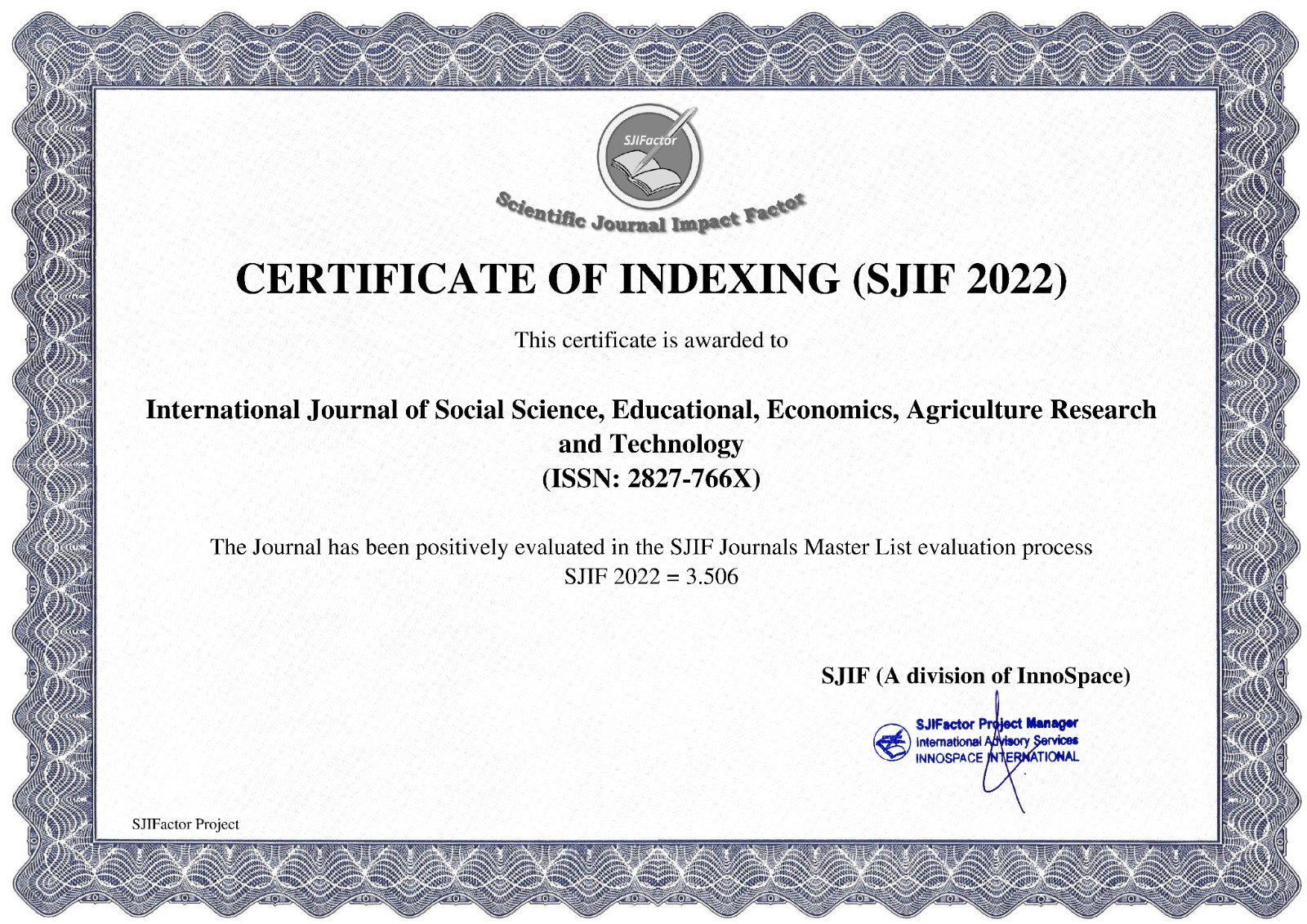THE EFFECT OF EMPLOYEE COMPETENCE, MANAGEMENT INFORMATION SYSTEMS, AND PARTICIPATORY LEADERSHIP ON EMPLOYEE PERFORMANCE AT THE KEPRI PROVINCIAL GOVERNMENT PUBLIC WORKS AND PUBLIC HOUSING AGENCYTHROUGH ORGANIZATIONAL COMMITMENT
Main Article Content
Trio Ardhimansyah
Chablullah Wibisono
Sri Yanti
This study aims to analyze the influence of employee competence, management information systems, and participative leadership on employee performance at the Public Works, Spatial Planning, and Land Agency (PUPRP) of the Riau Islands Provincial Government, with organizational commitment as a mediating variable. The research is motivated by the strategic role of PUPRP in infrastructure development and spatial planning, which requires optimal employee performance. The study employs a quantitative approach with data collected through questionnaires distributed to civil servants within the agency. The analysis uses Structural Equation Modeling (SEM) to test both direct and indirect effects of the independent variables on employee performance. The results indicate that employee competence, management information systems, and participative leadership significantly influence employee performance. Furthermore, organizational commitment partially mediates the relationship between these variables and employee performance. The findings highlight the importance of enhancing employee competence through continuous training, optimizing management information systems, and implementing participative leadership to improve organizational performance. These results provide practical recommendations for government institutions to develop strategies that strengthen organizational commitment and foster sustainable performance improvement.
Aspan, H., Rosli, R., Prabowo, A., & Wahyuni, E. S. (2025). Assessment of lecturer work effectiveness: Mediating organizational citizen behavior based on organizational commitment and work motivation. Journal of Ecohumanism, 4(1), 1089-1101.
Hair, J. F., Hult, G. T. M., Ringle, C. M., & Sarstedt, M. (2019). A Primer on Partial Least Squares Structural Equation Modeling (PLS-SEM) (Edisi ke-2). SAGE Publications.
Hasibuan, M. S. P. (2019). Manajemen Sumber Daya Manusia. Jakarta: Bumi Aksara.
Laudon, K. C., & Laudon, J. P. (2018). Sistem Informasi Manajemen: Mengelola Perusahaan Digital (Edisi ke-15). Pearson.
Mangkunegara, A. P. (2017). Manajemen Sumber Daya Manusia Perusahaan. Bandung: PT Remaja Rosdakarya.
Muhammad Multazam, Yusnidar, Ayu Anora, & Maisyuri. (2024). THE INFLUENCE OF FINANCIAL LITERACY, DEMOGRAPHIC FACTORS, LOCUS OF CONTROL AND PARENTAL INCOME ON BEHAVIOR STUDENT FINANCE (Study on Management Study Program Students at Bumi Persada University). International Journal of Economic, Business, Accounting, Agriculture Management and Sharia Administration (IJEBAS), 4(6), 2048–2056. https://doi.org/10.54443/ijebas.v4i6.2303
Muhammad Multazam, Rico Nur Ilham, Muttaqien, & Ayu Anora. (2024). THE IMPACT OF DIGITAL FINACIAL INCLUTION ON THE SUSTAINABLE FINANCE OF THE MSME SECTOR IN THE LHOKSEUMAWE CITY REGION WITH MODERATION OF THE BANKING SERVICE MODEL. International Journal of Economic, Business, Accounting, Agriculture Management and Sharia Administration (IJEBAS), 4(4), 1231–1242. https://doi.org/10.54443/ijebas.v4i4.1883
Muhammad Multazam, Rico Nur Ilham, Ayu Anora, Muttaqien, Rahmiatul Aula, Ismuhadi, & Utaminingsih, E. (2025). BASIC INVESTMENT TRAINING IN THE CAPITAL MARKET FOR UMKM AND RESIDENTS OF HAGU BARAT LAUT VILLAGE. International Review of Practical Innovation, Technology and Green Energy (IRPITAGE), 5(2), 159–165. https://doi.org/10.54443/irpitage.v5i2.3484
Muhammad Multazam, Rico Nur Ilham, Irada Sinta, Muttaqien, Ayu Anora, & Yusnidar. (2024). DIGITAL FINANCIAL LITERACY TRAINING FOR YOUTH OF NORTHWEST HAGU VILLAGE USING CAPITAL MARKET INVESTMENT AND STOCK SAVINGS METHODS. International Review of Practical Innovation, Technology and Green Energy (IRPITAGE), 4(3), 301–307. https://doi.org/10.54443/irpitage.v4i3.2066
Muhammad Multazam, Rico Nur Ilham, Muttaqien, & Ayu Anora. (2024). THE IMPACT OF DIGITAL FINACIAL INCLUTION ON THE SUSTAINABLE FINANCE OF THE MSME SECTOR IN THE LHOKSEUMAWE CITY REGION WITH MODERATION OF THE BANKING SERVICE MODEL. International Journal of Economic, Business, Accounting, Agriculture Management and Sharia Administration (IJEBAS), 4(4), 1231–1242. https://doi.org/10.54443/ijebas.v4i4.1883
Muhammad Multazam, Yusnidar, Ayu Anora, & Maisyuri. (2024). THE INFLUENCE OF FINANCIAL LITERACY, DEMOGRAPHIC FACTORS, LOCUS OF CONTROL AND PARENTAL INCOME ON BEHAVIOR STUDENT FINANCE (Study on Management Study Program Students at Bumi Persada University). International Journal of Economic, Business, Accounting, Agriculture Management and Sharia Administration (IJEBAS), 4(6), 2048–2056. https://doi.org/10.54443/ijebas.v4i6.2303
Meyer, J. P., & Allen, N. J. (1997). Commitment in the Workplace: Theory, Research, and Application. SAGE Publications.
Prabowo, A., Sari, P., Tanjung, Y., Roni, S., & Alfredo, R. H. (2025). SMART OFFICE, SMART NATION: Smart Office, Smart Nation: Mempersiapkan Generasi Unggul Melalui Standarisasi Uji Kompetensi Otomatisasi Tata Kelola Perkantoran. Jurnal Pengabdian UntukMu NegeRI, 9(2), 208-218.
Robbins, S. P., & Judge, T. A. (2019). Perilaku Organisasi (Edisi ke-18). Jakarta: Salemba Empat.
Santi, S. & Prabowo, A. (2023). Pengaruh Stress Kerja Dan Lingkungan Kerja Terhadap Kepuasan Kerja Dengan Work Engagement Sebagai Variabel Mediasi. Jurnal Ekonomi Bisnis Manajemen Prima, 4(2), 98-110.
Sedarmayanti. (2018). Manajemen Sumber Daya Manusia: Reformasi Birokrasi dan Manajemen Pegawai Negeri Sipil. Bandung: Refika Aditama.
Siagian, S. P. (2018). Teori dan Praktek Kepemimpinan. Jakarta: Rineka Cipta.
Spencer, L. M., & Spencer, S. M. (1993). Competence at Work: Models for Superior Performance. John Wiley & Sons.
Sugiyono. (2019). Metode Penelitian Kuantitatif, Kualitatif dan R&D. Bandung: Alfabeta.
Sutrisno, E. (2019). Manajemen Sumber Daya Manusia. Jakarta: Kencana Prenada Media Group.
Yukl, G. (2013). Kepemimpinan dalam Organisasi (Edisi ke-8). Jakarta: Indeks.
Trio Ardhimansyah
systems, and participative leadership on employee performance at the Public Works, Spatial Planning, and Land Agency (PUPRP) of the Riau Islands Provincial Government, with organizational commitment as a mediating variable. The research is motivated by the strategic role of PUPRP in infrastructure development and spatial planning, which requires optimal employee performance. The study employs a quantitative approach with data collected through questionnaires distributed to civil servants within the agency. The analysis uses Structural Equation Modeling (SEM) to test both direct and indirect effects of the independent variables on employee performance. The results indicate that employee competence, management information systems, and participative leadership significantly influence employee performance. Furthermore, organizational commitment partially mediates the relationship between these variables and employee performance. The findings highlight the importance of enhancing employee competence through continuous training, optimizing management information systems, and implementing participative leadership to improve organizational performance. These results provide practical recommendations for government institutions to develop strategies that strengthen organizational commitment and foster sustainable performance improvement.






















